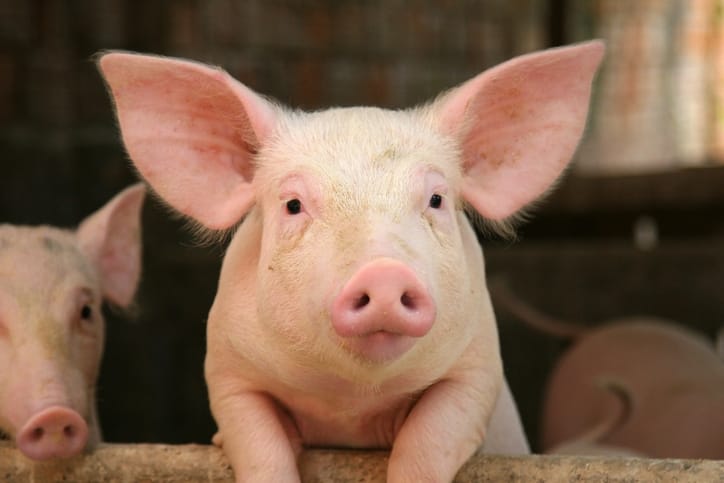Travis Barker on the Treadmill and Other Fitness Content Slop

In this week's Garbage Day newsletter, Ryan Broderick argues that "content slop" is much more pervasive – the problem much more insidious – than the AI-generated memes that have garnered quite a bit of attention lately. You know, the shrimp-Jesus images that are all over Facebook. "Content slop," he says, is't just all that ubiquitous autogenerated stuff, although it is indeed ubiquitous. It's the content that feels worthless, that's forced on us, and that's "optimized" to be so. Broderick points to the way in which movie stars like Ryan Reynolds and Dwayne Johnson have become brands – how their side hustles are ads for creative projects are ads for their side hustles. Everything has degenerated into content that just feeds the algorithms for more content – all watered down and forgettable, even if it is – as was the Reynolds/Johnson movie Red Notice for Netflix – the most popular content ever. (Just because it's everywhere doesn't mean that it's good.)
Celebrities churning out meaningless fitness content – all ostensibly to promote their "brand" has become something of note lately. See Travis Barker, drummer of Blink-182, who has rigged his treadmill with drums – all an effort to promote his new run club, which will hold a race here in NYC next weekend. "Experience a day-in-the-life of Travis Barker," the ad says. It's actually a 5K around the parking lot at Citi Field, and for $500 you can get your picture taken with the guy. (It is possible, you know, that the Kardashians aren't the marketing geniuses we've been told they are. Or maybe they are, and it's all just "content slop.")
"Content slop" begets more content slop, as journalists feel they need to get in on the gimmick. "I took a cruise." "I drove a Cybertruck." "I drank a smoothie from Erewhon every day for a week." "I Tried Lenny Kravitz’s Insane, Uncanny Workout." That sort of thing.
It's a good reminder, perhaps, that it's not so much that AI is getting better. It's that humans are just becoming more like robots.
Speaking of which, I'll have more to say on Goldman Sachs's report on Generative AI – along with the recent spate of "robots replacing teachers" stories – in Monday's "Extra Mile" newsletter. (Paid subscribers only. Sorry, but if I'm gonna write about ed-tech again, I gotta get paid.)
Elsewhere in the business of health tech: Samsung will release its first "smart ring," the Galaxy Ring, later this month. It'll retail for $399. It "augments — rather than replaces — all of the stuff devices like the Galaxy Watch already do," says TechCrunch. In other words, totally unnecessary.
A new startup says it can create an "AI clone" of a loved one or ex to create a "personalized emotional support network." (Because nothing says "personalized emotional support" like a fucking chatbot recreated to sound like your ex.) "We are transforming traditional therapy into an entertaining experience," according to the founder.
The longevity hustle: "Pickleball Boom Has Investors Circling the Growing Racket Sport," says Athletech News. The Wall Street Journal on "Gray Hair, Huge Muscles: Why Older Women are Bulking Up."
Over on the Ozempic beat: according to a study out of Case Western Reserve, GLP1s could help treat alcohol abuse. "Ozempic’s Addiction-Fighting Potential Is Being Ignored," writes Bloomberg columnist Lisa Jarvis. Except it doesn't seem to be being ignored because there was a lot of media on it this week, but whatever.
Rina Raphael writes about "the healthification of hair," pointing to hair products as the latest wellness trend. She also said that wellness beverages were going to be a big thing this year, and look: Athletic Brewing has raised $50 million in funding for its non-alcoholic beer. "Wellness beer." LOL.
Via National Geographic: "How body odor became a corporate moneymaker."
Apparently Delta is adding a bunch of "wellness technologies" to its airport lounge at JFK. Flying sucks. But here, put on a spa robe, lie back, and forget about it.
Hurdler Christina Clemons wore an "illegal Doritos speedsuit" on the first day of competition at the Olympic Track & Field Trials. Clemons is sponsored by Doritos, whose logo was not approved by the USOC. She was told she had to cover up the logo on her gear, so she used triangle-shape iron-ons to do so. "Cool Ranch Clemons," indeed.
The New York Times, noting that these will be the hottest Olympics ever, explores the various technologies that athletes use to "manage extreme temperatures."
Speaking of global climate change, I'm glad to see a few more headlines lately that discuss the environmental consequences of the increased demand for computer processing power – another terrible side effect of all this terrible AI. That same demand on the electrical grid has been happening for a while with Bitcoin mining too. It does seem like Silicon Valley is just hell-bent on destroying the planet, no? Via Time: "‘We’re Living in a Nightmare:’ Inside the Health Crisis of a Texas Bitcoin Town."
Thanks for subscribing to Second Breakfast. I'm racing my first triathlon this weekend, so I'll be back next week with a race report alongside discussion of the cultural technology of cycling and a review of the "personalized" training app Runna.





